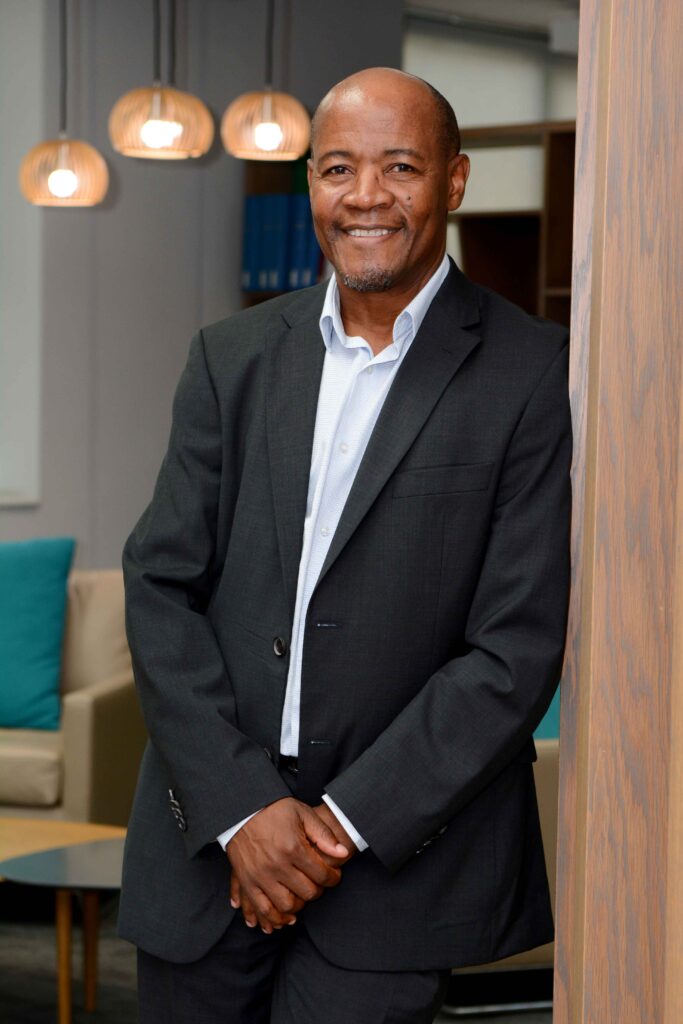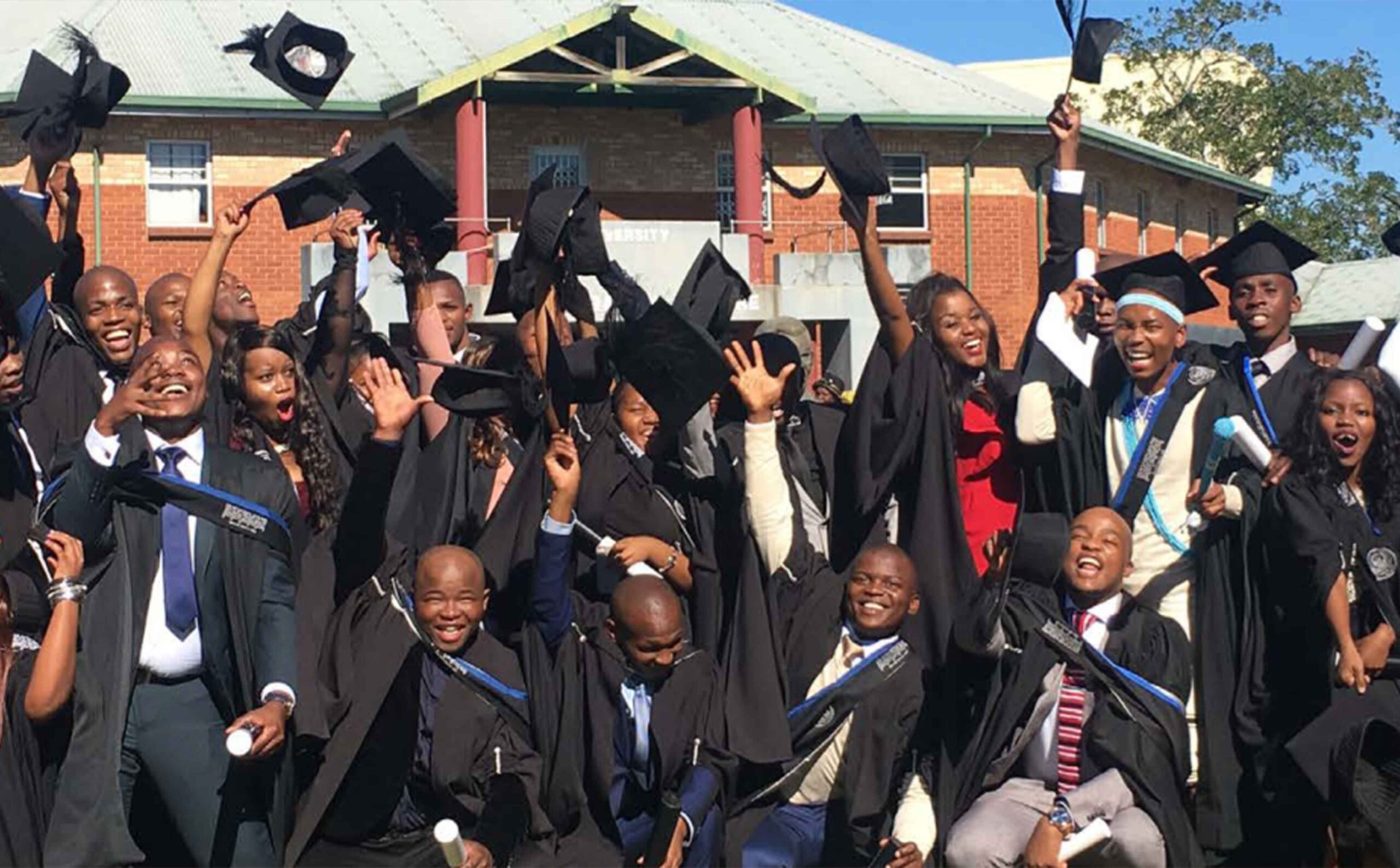SAICA’s Thuthuka Education Upliftment Fund is doing wonders for the transformation of the chartered accountancy profession in South Africa. Here’s the lowdown on what the initiative is all about and how you can get involved by becoming a donor.
The Thuthuka Education Upliftment Fund is SAICA’s pioneering initiative to promote transformation in the chartered accountancy profession.
Its objective is to transform the demographics of the chartered accountancy profession to reflect those of the country’s economically active population, both in terms of race and gender. This is done through the Thuthuka Bursary programme, established in 2002, and other educational programmes from basic education to a chartered accountancy qualifying level.
The Thuthuka Bursary programme operates under the Thuthuka Education Upliftment Fund Board (TEUF) and its primary activity is assisting financially deserving African and coloured students to become CAs(SA). Learners and students who come from families with a combined household income of R350 000 or less per annum can apply for a Thuthuka bursary.
For the chartered accountancy profession, these initiatives ensure that the economy has a consistent flow of adequately and suitably qualified accounting professionals who are representative of the country’s demographics.
As a profession that strives to be difference makers in society, such educational programmes are important, as the profession sees itself as a contributor in resolving societal challenges. Therefore, Thuthuka is the profession’s contribution to the country’s broader educational challenges and plight to achieve quality education as stated in United Nations’ Sustainable Development Goals (SDG) number 4–’Quality Education’. This contributes to the country’s broader challenges linked to ‘SDG 2: Zero Hunger’, ‘SDG 8: Decent Work and Economic Growth’, and ‘SDG 10: Reduced Inequality’.
More importantly, Thuthuka is run through the pooling of funds from different donor organisations. Therefore, this achieves ‘SDG 17: Partnerships to Achieve the Goal’.
The Thuthuka Bursary programme model
The Thuthuka Bursary programme is not just focused on providing financial support to students. Thuthuka focuses on an integrated and holistic approach to ensure students’ success. Students receive support which includes, amongst others, the following:
- Academic support and enrichment programmes, such as additional tutorials, study skills workshops;
- Psycho-social support;
- Work-readiness and life skills training;
- Mentoring and counselling;
- Access to dedicated programme managers; and
- Exposure to experienced chartered accountants and business leaders through workshops organised by TEUF.
The Thuthuka Bursary programme also follows a pooling of funds model. This means that donor organisations and other key stakeholders pool funds into Thuthuka. Thuthuka then administers the funds and ensures that students are supported in order to achieve the best results possible.
Thuthuka donors include several organisations, such as the training offices–who would appoint the students as trainees in their journeys towards qualifying as chartered accountants–and other donors who contribute mainly towards skills development, even if they do not seek trainees. Thuthuka donors include key partners such as the National Research Foundation and the Nations Skills Fund, NSFAS, Fasset, and W&RSETA.
Challenges and strategic alignment
As mentioned above, Thuthuka is wholly dependent on donor funding. Therefore, funding remains a challenge, and SAICA and TEUF are calling on organisations that wish to contribute to contact SAICA directly (contact details listed at the end of the article).
Another challenge remains the pass rates of students at 3rd year and Post-Graduate Diploma in Accounting (PGDA) level. Many students seem to struggle with their 3rd and PGDA years. To this end, SAICA has been engaging with key stakeholders to understand the root causes and to come up with ways in which these can be resolved.
Also of great concern to SAICA are the recent Matric results and the number of learners passing mathematics with at least 60%. Mathematics is a gateway subject to several critical skills occupations. Mathematics is important in developing the learners’ reasoning, critical thinking, and problem-solving skills, as needed in many of the critical skills occupations. Many of the universities that are accredited by SAICA for purposes of enrolling students to study towards chartered accountancy would require learners to have achieved at least a 60% in mathematics in their Matric year.
Mathematics and the challenges of learner enrolment in mathematics is not only a government problem, nor is it only a Department of Basic Education problem. SAICA views this problem as a societal problem. Therefore, society must be part of the solution. To this end, SAICA runs several initiatives aimed at promoting the importance of mathematics. This includes general career guidance and additional tutorials for learners through winter and summer development camps. SAICA partners with the provincial departments of education for these camps. SAICA has also developed videos as additional tools to assist learners in this regard and has partnered with the profession to ensure that a wider reach is obtained.
But it doesn’t end there, as a focus on educator development is required. SAICA partners with the South African Mathematics Foundation in promoting mathematics amongst learners and also in the development of mathematics educators. The education and transformation challenges faced in South Africa are not only the challenges of the government alone. The National Development Plan speaks about the goal of building a capable state. One can also refer to the United Nations’ SDGs.
These challenges require all professions and all concerned in the country to stand and work closely with the government in solving these issues. SAICA believes that the key to addressing these issues is education and skills development. Therefore, SAICA’s initiatives around Thuthuka and the mathematics initiatives are aligned to the country’s strategy of building a capable state. These initiatives also contribute directly in the creation of employment for the youth of South Africa.
Key milestones and future endeavours
Since 2002, Thuthuka’s school and university initiatives have helped change the SAICA membership demographics of members under the age of 35 from 3% African members to 33% African members. Thuthuka started with only three partner universities, but today Thuthuka is available at 12 universities. To date, the Thuthuka Bursary has created more than 3 000 black and coloured CAs(SA), with more than 2 000 currently in the various stages of the qualification pipeline. This is quite an achievement when you consider that it takes at least seven years to qualify as a CA(SA). In addition, over two million learners across the nine provinces have been impacted by Thuthuka’s school initiatives, while over 10 000 students have been impacted by Thuthuka’s university projects. Over the past 21 years, Thuthuka has become one of the most successful transformation and skills development programmes in South Africa. Thuthuka’s value proposition and vision is to continue sustaining the future of the chartered accountancy profession and transforming its demographics by advancing education and empowering the youth. SAICA believes that more still needs to be done to achieve transformation in the country, therefore, SAICA will continue to invest in Thuthuka to ensure that the profession continues to strive towards a well-represented profession.
You can get involved
Interested parties can donate to Thuthuka by going to the SAICA website (www.saica.org.za) and clicking on the ‘Initiatives’ link. All the relevant information on Thuthuka is on the website, as well as a ‘Make a Pledge’ button. Pledges are eligible for tax deductions under section 18A of the Income Tax Act. Companies that wish to partner with Thuthuka or become Thuthuka donors can contact Thuthuka on tb*@sa***.za .
By supporting Thuthuka, a company will:
- Earn vital points for their B-BBEE scorecard for investing in a project lowering youth unemployment across the nation;
- Be eligible for a tax deduction on the money they donate;
- Gain corporate reputation enhancement by associating with a reputable and premium scarce skills development programme; and
- Have access to a pool of graduates for your company’s learnership programmes–so you too can be a part of building the nation by creating jobs.

Freeman Nomvalo



